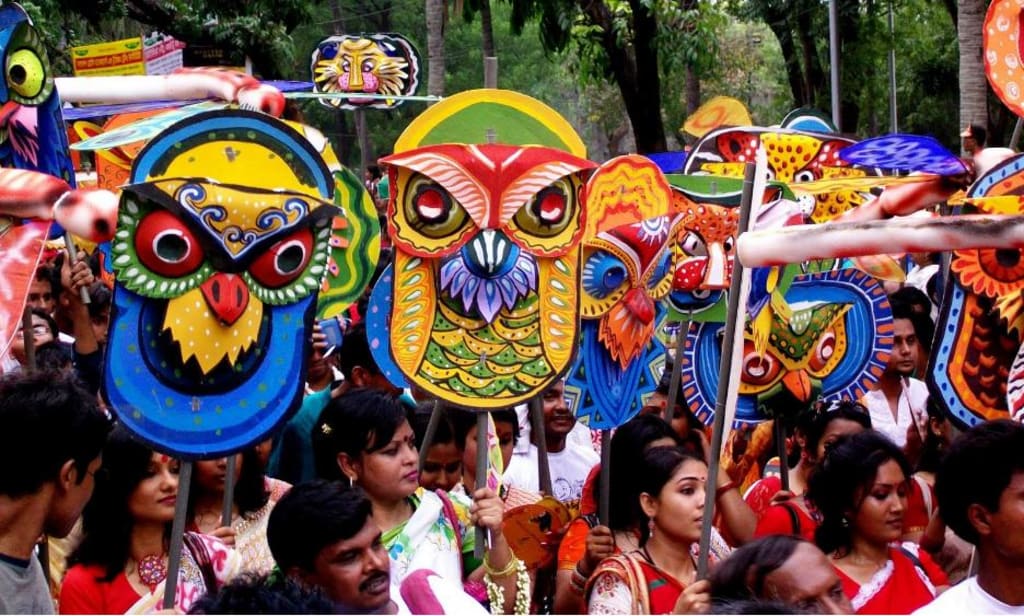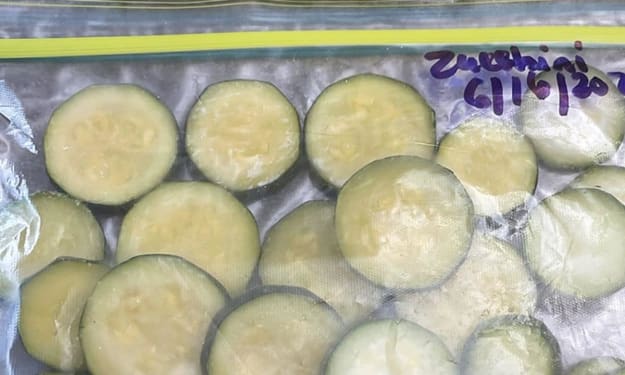Pohela Boishakh
Article about Bengali Culture


Bengalis worldwide commemorate Pohela Boishakh, the inaugural day of their new year, with the exclamation "Shubho Noboborsho!" This occasion serves as a tribute to their rich cultural heritage, age-old customs, and the melodious Bengali language (Bangla), which holds the distinction of being the second most widely spoken language in India. In a show of solidarity, Duolingo, the leading language learning platform globally, partakes in the festivities by curating a playlist featuring iconic Bengali tunes by renowned artists such as Rabindranath Tagore, Kishore Kumar, and Anupam Roy. Immerse yourself in the enchanting melodies of Bengal and embrace the essence of Pohela Boishakh! This year, Pohela Boishakh will be observed on Sunday, April 14.

1. Tagore's poetic invocation for the Bengali New Year, "Eso he Boisakh, eso eso," resonates with a sense of anticipation and renewal, urging the arrival of the month of Boishakh with a gentle breeze. His words, "botsorer aborjona dur hoye jaak, jaak, eso eso," encourage leaving behind the sorrows of the past year and embracing the new beginning with optimism and hope.
2. Hemanta Mukherjee's melodious rendition of "Nabo Anande Jago Aaji" conveys warm wishes for a prosperous Bengali New Year, emphasizing the idea of awakening to a new joy under the fresh rays of the sun and embracing a life that is bright, beautiful, and divine in nature.
3. Anupam Roy's song "Kolkata" evokes a strong sense of nostalgia for those separated from their homeland, encapsulating the essence and sentiment of the city of Kolkata. The lyrics, "Kolkata tumio hete dekho kolkata, Tumio vebe dekho jabe kina jabe amar sathe," evoke a longing for home and a deep connection to the city.
4. Through the verses of "Baanglar Maati Baanglar Jal," Rabindranath Tagore beautifully celebrates the essence of Bengal, praising its soil, water, air, and fruits as symbols of divine blessings. This 'State Song' glorifies the lives, minds, forests, land, homes, air, and hopes of the people of Bengal.
5. Kishore Kumar, in his timeless voice, expresses a yearning for enlightenment, knowledge, and an appreciation for life's simple pleasures in "Aloker Ei Jharna Dharay." His words, "aloker ei jharnadhara dhwie dao, aapnake ei lukie-rakha dhular dhaka dhwie dao," reflect a desire to be immersed in the waterfall of light and hidden in the dust while being enveloped in the essence of light.
6. Sandhya Mukherjee's rendition of "Ki Mishti Dekho Mishti" beautifully captures the essence of sweetness and joy, symbolizing the beauty of life through the lens of sweetness. Her song resonates with a sense of delight and celebration, inviting listeners to appreciate the sweetness that life has to offer.

There are various theories surrounding the origin of Poila Baisakh. One theory suggests that during the Mughal rule, taxes were collected based on the Islamic Hijri calendar, which did not align with the solar agricultural cycles.
As a result, Bengalis introduced this festival and the Bengali calendar became known as the Bangabda. Another theory attributes the Bengali calendar to King Shashanka, with references to Bangabda found in two Shiva temples, indicating its existence before the Akbar era.
The Bengali calendar commences with Boishakh or Baisakh, coinciding with the harvest season, hence the name Pohela Boishakh for Bengali New Year. According to Drik Panchang, King Shoshangko of ancient Bengal is credited with initiating the Bengali era, estimated to have begun in 594 in the Gregorian calendar.

Poila Baisakh is a special celebration for Bengali communities in West Bengal, Assam, and Bangladesh. They shop for new clothes and gifts, cook delicious Poila Baisakh dishes, and gather with loved ones to enjoy the feast together.
Some also visit temples to seek blessings from gods and goddesses for a prosperous new year. The traditional greeting "Shubho Nobo Borsho" is exchanged among people on this day.
Prayers are offered for a successful harvest on the auspicious day of Pohela Baisakh. It is also a significant day for traders as they mark the beginning of the new accounting year by opening the Haal Khaata accounts book.

During Pohela Boishakh, individuals come together with their loved ones to celebrate. They enjoy visiting fairs, tidying up their homes, and dressing up in new clothes. It is also common to adorn their houses with beautiful traditional designs known as alpona. As they welcome the New Year, they prepare various delicious dishes such as ilish maach, dhokar dalna, rice, sweets, and chanar dal. This special day is all about spending quality time with family, friends, and cherished ones. Poila Baisakh not only signifies the promise of a brighter future but also brings hope for prosperity, joy, good health, and wealth.





Comments
There are no comments for this story
Be the first to respond and start the conversation.